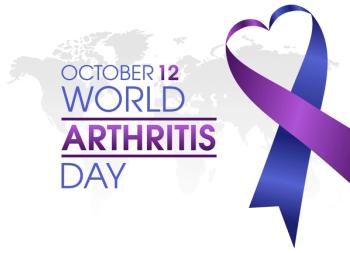
Inflammation
Latest News
Latest Videos

Shorts
CME Content
More News

A study reveals real-world effects of switching to adalimumab biosimilar Hyrimoz, highlighting flare rates and injection pain concerns in inflammatory disease patients.

US adults with arthritis have higher odds of stress, urge, and mixed urinary incontinence, highlighting the need for routine screening and integrated care.

Patients hospitalized for bronchiectasis exacerbations face higher mortality, longer stays, and greater costs than those with COPD or asthma.

Brensocatib improves lung structure and reduces exacerbations in non-cystic fibrosis bronchiectasis with or without COPD, according to posters presented at this year's CHEST meeting.

A session held during the CHEST 2025 Annual Meeting focused on the North American guidelines for treating bronchiectasis.

Tezepelumab (Tezspire) improves symptoms, reduces surgery needs, and lowers steroid use in patients with chronic rhinosinusitis with nasal polyps (CRSwNP).

Results from the ASPEN trial also show that brensocatib displayed several benefits when used in patients with bronchiectasis, including a reduction in symptom burden.

Arthritis care remains fragmented and costly, with access disparities prompting calls for preventive strategies, community resources, and systemic improvements.

The new indication allows doctors to use upadacitinib before tumor necrosis factor–blocking agents when those treatments are clinically inadvisable.

Arthritis is not one disease, and it has an impact that extends far beyond the well-known osteoarthritis or rheumatoid arthritis.

Although rarely used in psoriatic arthritis (PsA), combination targeted therapy (CTT) appears to have a safety profile comparable to standard therapy.

GLP-1 RA tirzepatide may be more cost-effective for patients with obesity and knee osteoarthritis than semaglutide.

Patients with bronchiectasis who are highly symptomatic face an increased risk of future exacerbations, suggesting symptoms should guide prevention strategies.

Lower geriatric nutritional risk index (GNRI) scores in older patients with osteoarthritis are linked to higher all-cause and cardiovascular mortality risks, highlighting the critical role of nutritional assessment in managing their health.

Both systemic sclerosis and systemic lupus erythematosus have down-regulated RGS5, but they also have distinctive genetic expression profiles.

Brensocatib (Brinsupri; Insmed) gains FDA approval as the first treatment for bronchiectasis, offering hope to patients with the chronic lung disease.

Researchers discovered a significant negative correlation between an individual's oxidative balance score and systemic immune-inflammation index, highlighting the role of antioxidants in reducing inflammation.

Researchers found no significant differences in surgical outcomes or follow-up between housed and unhoused patients with osteoarthritis undergoing total joint arthroplasty, suggesting the procedure is safe and effective regardless of housing status.

Being overweight or obese may lower all-cause mortality risks in non–cystic fibrosis (CF) bronchiectasis patients, while being underweight increases health complications.

Significant gaps in arthritis subtype awareness among US adults underscore the need for improved health literacy and more targeted public health efforts.

Patients with bronchiectasis face heightened risks of severe exacerbation and mortality after COVID-19 recovery, especially following severe cases.

Late-breaking data reveal durable improvements in joint, skin, and quality of life outcomes with deucravacitinib.

Inhaled corticosteroid (ICS) use was common among patients with bronchiectasis and was associated with reduced exacerbations and hospitalizations in those with elevated blood eosinophil counts.

New research suggests that adhering to an anti-inflammatory diet may lower the risk of dying from Alzheimer disease.

New research links arthritis to an increased risk of prostate cancer, highlighting the need for further studies on prevention and treatment strategies.















